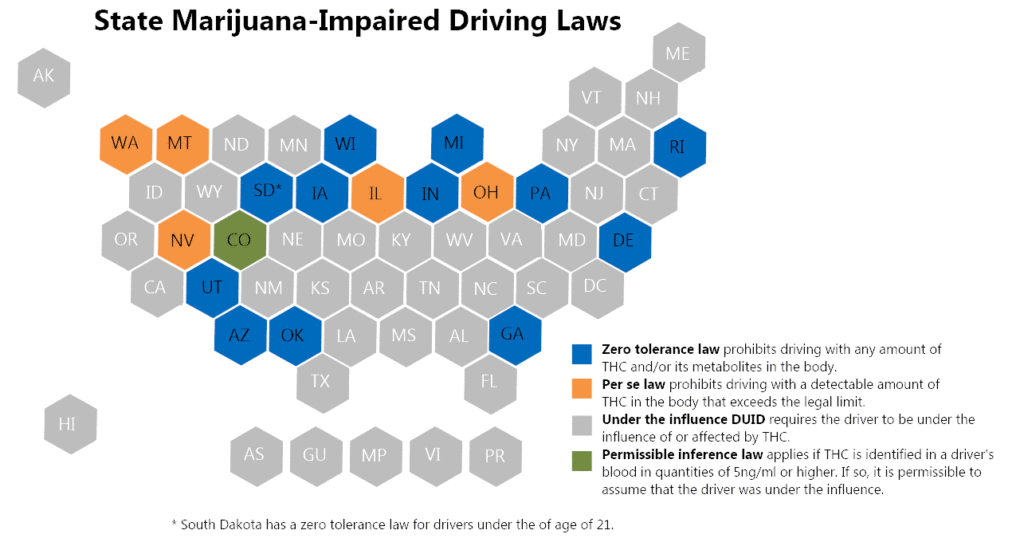Many of our followers take a low dose of cannabis after work to unwind or help them sleep. Consuming in the safety of your own home is one thing, but what if you take a low-dose product and need to drive?
Motor impairment related to cannabis use is a serious issue. As when you are taking any prescription medication or using alcohol, it is important to exercise extreme caution when using cannabis and avoid operating heavy machinery. If you consume cannabis in low doses, you may not be experiencing any issues related to motor control. Everyone reacts differently, and it’s important to understand your unique reaction, especially if you are using a product that contains THC.
Assuming you evaluate your reaction very carefully and choose to operate a motor vehicle, it is important to understand your state laws and your exposure. Driving laws for cannabis use are still murky, but we’ll keep you up to date on current legislation so you can stay as safe as possible.
The biggest hindrance to state driving laws is limitations on drug testing. As we mentioned in our post on cannabis workplace laws, no current cannabis tests are exact. THC from cannabis essentially delivers a positive or negative result, but current tests can’t determine when it was taken or if it’s still affecting the person.
So, while current alcohol levels can be tested roadside with a Breathalyzer, a similar product is not yet available for detecting THC levels. Some states have still imposed per se cannabis driving laws, setting limits on THC blood content. Since this is not an exact science, however, prosecution is a complex and difficult task, which is why many states haven’t established these laws. See the chart below for current state laws.

If you live in a state with a zero tolerance policy, any positive test for cannabis while driving puts you legally at risk. Even some states that allow recreational cannabis have zero tolerance policies. For all other states, there are some laws in place leaving a grey area for cannabis users over 21.
If you’re in one of the few states with per se laws, which puts a cap for THC blood level limits, you’re in a tough situation. Just like alcohol, there isn’t an exact science for how much cannabis puts you over the legal driving limit. It depends on factors like frequency of consumption, BMI, and tolerance level.
The rest of the states are in more of a grey area – they require that the driver not be currently under the influence of THC. This is primarily tested visually by the arresting officer, who is trained to detect the influence of cannabis.
So if you’re in any state other than one with no tolerance, what does this really mean? Just like current drug testing, there is no exact way to know you’re legally safe other than total abstinence. Keep in mind that this testing is also related to THC content. If you are using a product without THC, there is not as much risk.
In summary, as is the case with using prescription medication and alcohol, if you choose to take cannabis in low doses, you need to use your judgment and exercise caution. Understand your body and never drive unless you’re positive you’re not cognitively impaired.
This article is for education purposes only and is not intending to provide legal advice. With rapidly changing laws surrounding cannabis use, seek legal advice to understand up-to-date federal and state laws.
Sources
http://www.ncsl.org/research/transportation/drugged-driving-overview.aspx
https://www.npr.org/2018/08/04/634992695/the-pot-breathalyzer-is-here-maybe
https://www.nbcnews.com/health/health-news/smoking-weed-when-someone-too-high-drive-n954211
